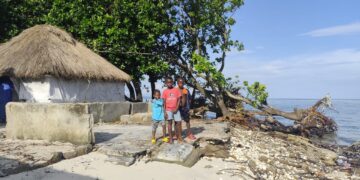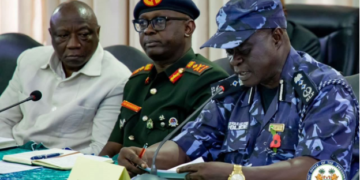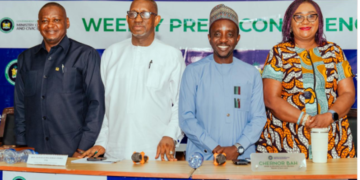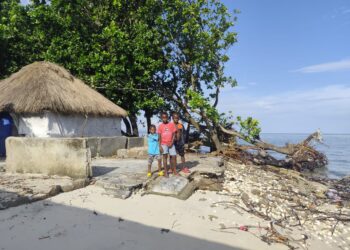The spate of buildings collapsing across the country has sparked widespread concern, with the latest tragedy involving a seven-storey building at Kissy Shell in the East End of Freetown. The incident, which occurred on September 16, 2024, resulted in devastating consequences, including loss of life, severe injuries, and significant property damage. As families mourn the loss of loved ones and others deal with lasting injuries and the destruction of their homes, there is an urgent need to address the underlying causes of such disasters.
The alarming frequency of building collapses, particularly in urban centers, points to systemic issues in construction practices, regulatory oversight, and land use planning. In light of this growing crisis, concerned citizens are calling for the immediate implementation of robust safety measures to prevent future tragedies and protect Sierra Leoneans from unnecessary loss of life and property.
One of the most critical solutions to curbing building collapses is the enforcement of strict building codes and regulations. These codes must include stringent design standards that incorporate elements designed to withstand the country’s natural hazards, such as heavy winds and flooding.
Additionally, material specifications should be rigorously outlined to ensure that only high-quality, resilient building materials are used in construction projects.
Equally important is the role of government authorities in enforcing these regulations. Regular inspections by qualified professionals must be conducted at every stage of construction to ensure that builders adhere to these standards. Non-compliance must be met with severe penalties to deter future violations.
It was therefore welcome that when the Vice President visited the disaster site on the 17th of September 2024 while describing the incident as deeply unfortunate, he pledged that the government will take all necessary measures to reduce the frequency of building collapses, which continue to claim innocent lives. He stressed the government’s resolve to enforce compliance with building regulations to prevent such disasters in the future.
“The government is currently working to establish a national building code, which has been absent in this country since independence. Moving forward, we will empower the Ministry of Lands to enforce these building codes. High-risk buildings will be demolished to safeguard lives,” he said.
The public and government, especially President Julius Maada Bio, must be aware that a key factor contributing to building collapses is poor land use planning, particularly in densely populated cities like Freetown. To avoid disasters, comprehensive hazard mapping must be undertaken to identify and delineate high-risk areas such as floodplains, landslide-prone zones, and regions near fault lines. Zoning regulations should then be put in place to restrict development in these areas or mandate specific construction requirements that account for the identified risks.
Proper land use planning should also involve the incorporation of green spaces, which serve as natural buffers against flooding and other environmental hazards. These spaces not only mitigate disaster risks but also provide much-needed recreational areas for communities.
Site-specific risk assessments, such as geological surveys, hydrological studies, and other analyses, are also crucial in understanding the unique risks posed by different locations. By analyzing soil conditions, flood risks, and potential earthquake impacts, construction projects can be tailored to the specific needs of the site, enhancing the safety and longevity of buildings.
Adopting resilient construction techniques is another vital step in preventing building collapses. For flood-prone regions, elevating building foundations above expected flood levels can significantly reduce the risk of water damage and structural collapse.
Reinforced concrete structures, which provide enhanced strength and durability, should be the standard for all major construction projects. Additionally, the implementation of water management systems, such as drainage networks, can help manage rainwater runoff and prevent localized flooding.
Ensuring that construction workers are adequately trained in hazards awareness and disaster preparedness is critical to minimizing the risks associated with building projects. Workers must be educated on the specific natural hazards prevalent in their region.
Moreover, continuous monitoring and inspections throughout the construction process by officials of the Ministry of Lands and Environment are essential to identifying potential structural issues early.
It must be stressed that regular site inspections, coupled with rigorous structural integrity checks, can help ensure that buildings are safe for occupancy and reduce the likelihood of future collapses.
For any disaster mitigation strategy to be effective, it is crucial to involve local communities in the planning and decision-making process. By addressing the specific concerns and vulnerabilities of those directly affected by building projects, authorities can ensure that safety measures are tailored to the needs of the people.
The integration of advanced technologies, such as Building Information Modeling (BIM), can further enhance safety by optimizing building designs and identifying potential risks before construction begins.
This collaborative approach involving government agencies, construction professionals, engineers, and local communities is key to implementing comprehensive disaster prevention strategies.
As Sierra Leone grapples with the devastating effects of building collapses, the need for stricter regulations, safer construction practices, and more effective disaster preparedness cannot be overstated.
The tragedy at Kissy Shell and in other parts of the country serve as a stark reminder of the urgent reforms needed to prevent further loss of life and property. By adopting resilient building techniques, enforcing strict regulations, and involving communities in the process, Sierra Leone can create a safer, more sustainable future for its people.
It is important that those measures be strictly followed instead of attacking business entities that are marketing building materials, sometimes falsely accusing them of selling substandard products that contribute to buildings collapsing. We should re-examine ourselves and ensure that we do the right things in terms of undertaking proper construction of houses or buildings.
As this latest tragic incident is still fresh in the minds of Sierra Leoneans, with the death toll increasing as rescue operations are still ongoing, many are looking forward to the proactive measures that the government will institute, as assured by Vice President Mohamed Juldeh Jalloh, to empower the Ministry of Lands to enforce the aforementioned Building Codes and ensure that high-risk buildings are demolished to safeguard lives.
The time for action is now. Only through a concerted effort by all stakeholders can we hope to prevent further tragedies and ensure the safety and security of the nation’s citizens and non-citizens.

























